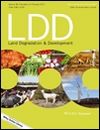- Joined
- Jan 2, 2013
- Messages
- 19,259
- Reaction score
- 6,899
- Gender
- Undisclosed
- Political Leaning
- Conservative
https://arstechnica.com/science/2017/04/107-cancer-papers-retracted-due-to-peer-review-fraud/
The journal Tumor Biology is retracting 107 research papers after discovering that the authors faked the peer review process. This isn’t the journal’s first rodeo. Late last year, 58 papers were retracted from seven different journals— 25 came from Tumor Biology for the same reason.
It’s possible to fake peer review because authors are often asked to suggest potential reviewers for their own papers. This is done because research subjects are often blindingly niche; a researcher working in a sub-sub-field may be more aware than the journal editor of who is best-placed to assess the work.
..Especially since warmists control the field with an iron fist.

^^^^^^
Brainwashed child of a liberal.
The journal Tumor Biology is retracting 107 research papers after discovering that the authors faked the peer review process. This isn’t the journal’s first rodeo. Late last year, 58 papers were retracted from seven different journals— 25 came from Tumor Biology for the same reason.
It’s possible to fake peer review because authors are often asked to suggest potential reviewers for their own papers. This is done because research subjects are often blindingly niche; a researcher working in a sub-sub-field may be more aware than the journal editor of who is best-placed to assess the work.
..Especially since warmists control the field with an iron fist.

^^^^^^
Brainwashed child of a liberal.





